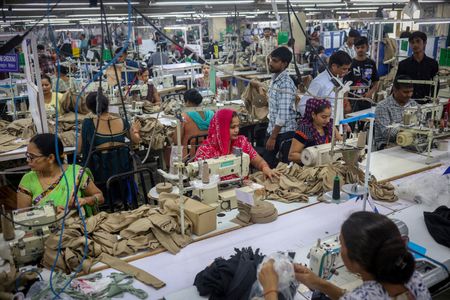NEW DELHI (Reuters) -India’s federal government said on Friday it was implementing four new labour codes, overhauling outdated rules governing factories and workers for decades.
Labour codes covering wages, industrial relations, social security and occupational safety will now be implemented uniformly across the country.
EASIER HIRE AND FIRE RULES
Companies with up to 299 employees can now lay off staff without government approval, as the threshold rises to 300 from 100 under new labour codes.
Previously, companies with 100 or more employees needed government‑approved employment conditions. The new labour codes raise the threshold, easing compliance and giving smaller firms greater flexibility.
WHAT CHANGES FOR WORKERS
Workers will now need to be provided formal, written employment letters. All workers, including gig workers, will now be offered social security benefits.
The codes introduce a floor for wages, which will reduce disparity across regions.
Other changes include the provision of a free annual medical health check.
WHAT CHANGES FOR BUSINESSES
Businesses can employ workers for 8-12 hours in a day, not exceeding 48 hours in a week. Currently, shifts are limited to 9 hours.
Overtime will be paid at double the normal wage rate.
Contractors can now obtain a single license for operating anywhere in the entire country. The license is valid for five years.
WOMEN WORKERS GET FLEXIBILITY
The codes ask employers to ensure equal pay for equal work.
Women can now work night shifts with safety measures, overturning earlier state restrictions on night work in certain industries.
The codes extend maternity benefits, including 26 weeks of paid leave to all women workers in unorganised sectors.
BOOST FOR GIG WORKERS
The labour codes define gig and platform work for the first time, expanding social security to categories previously outside formal labour regulation.
(Reporting by Sarita Chaganti Singh, Nikunj Ohri; Editing by Anil D’Silva)









